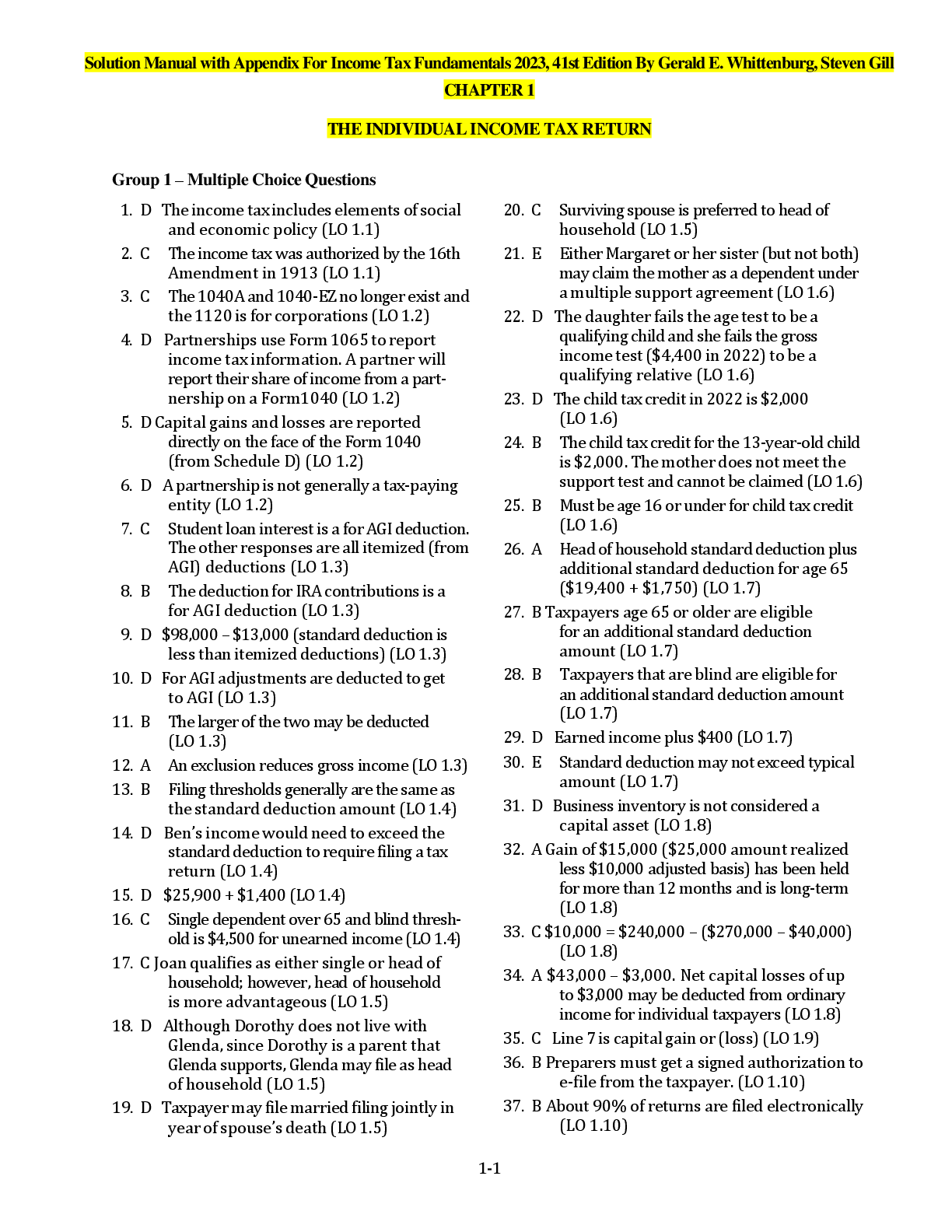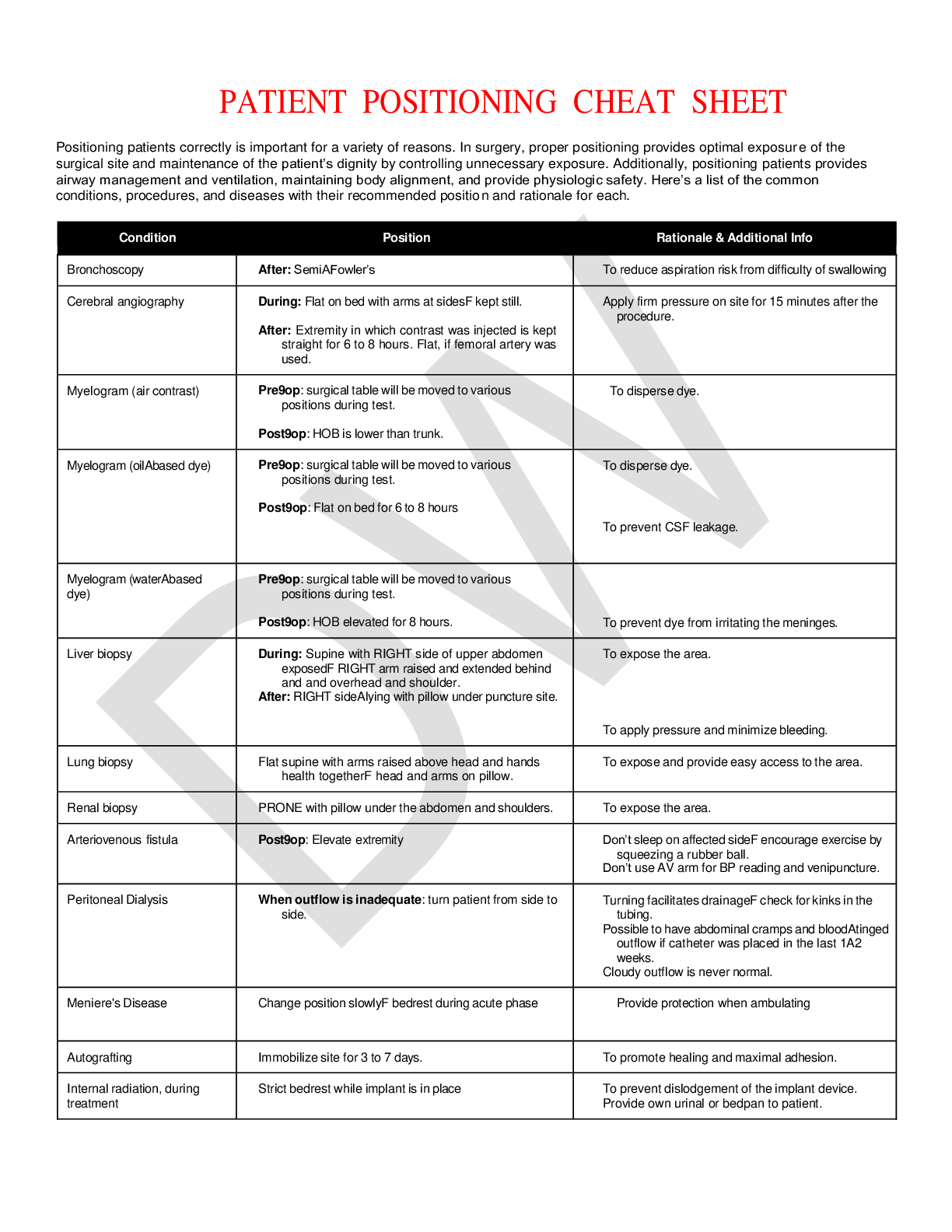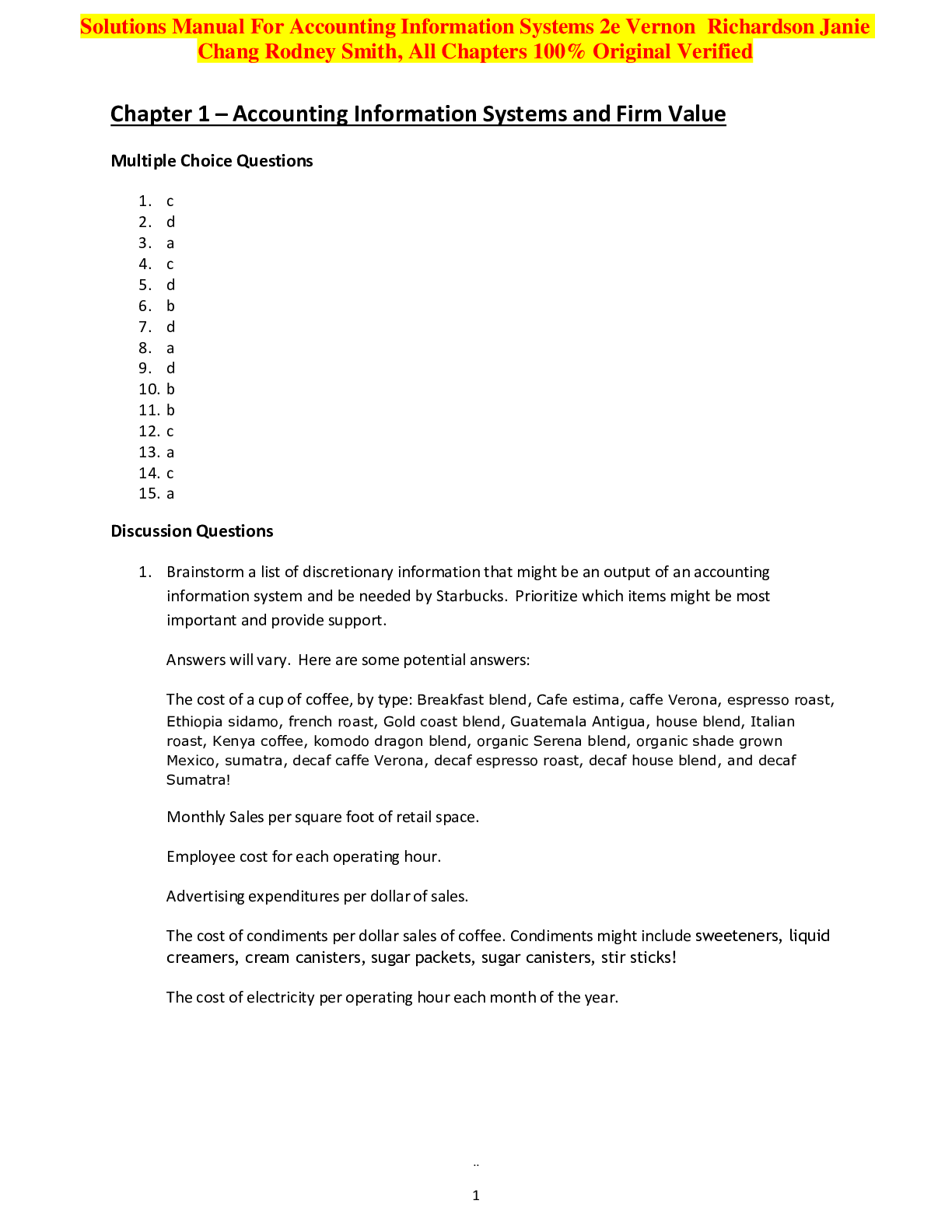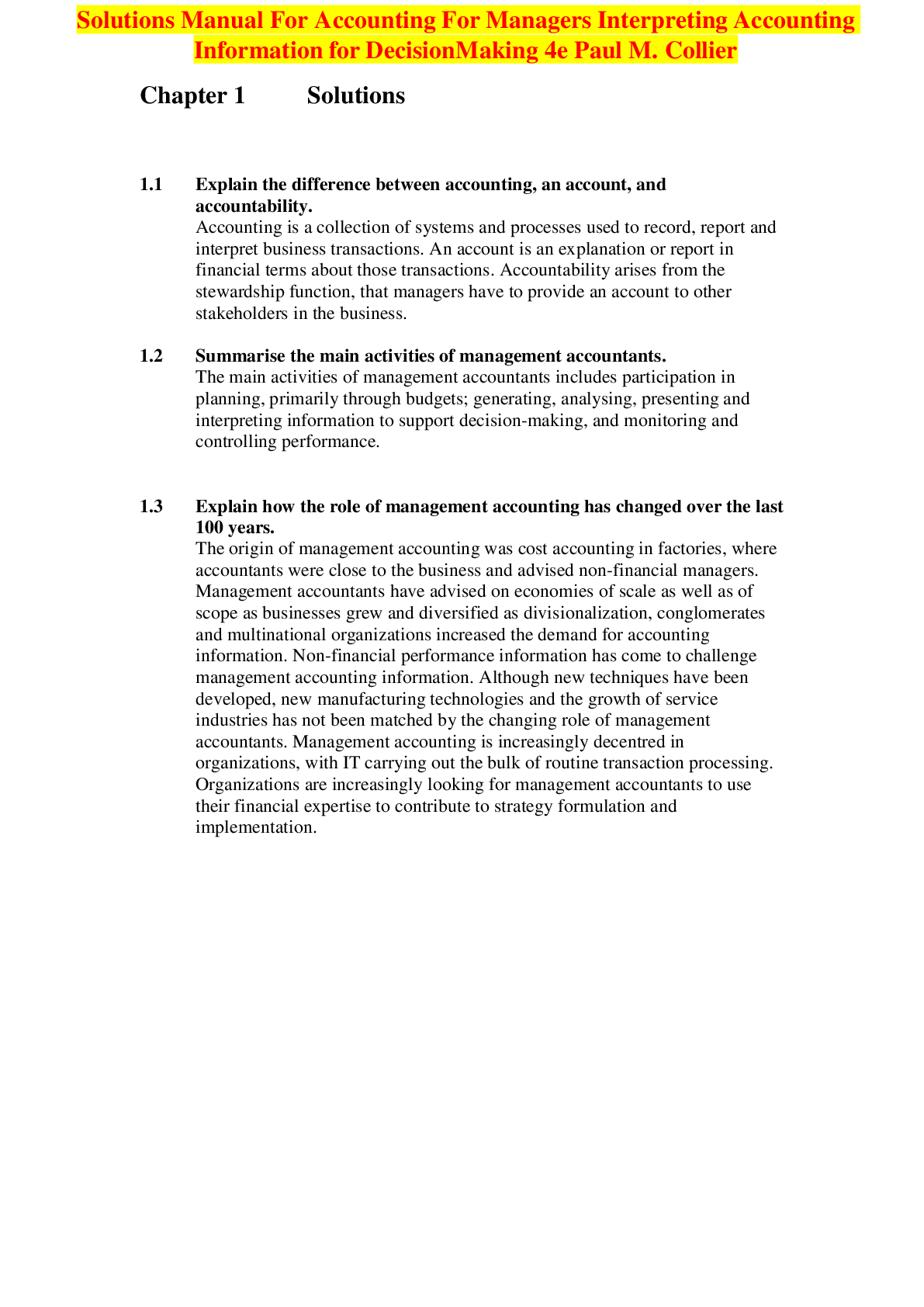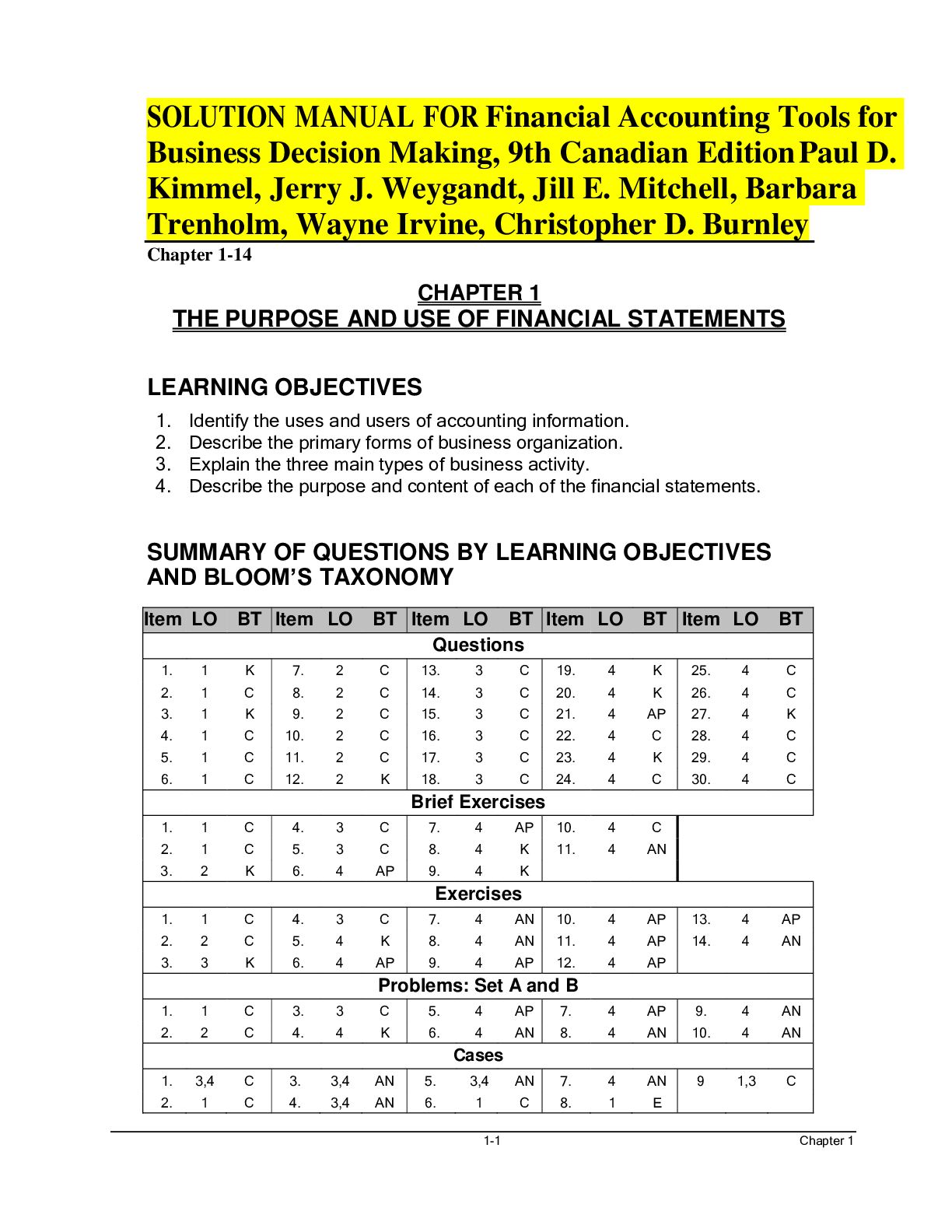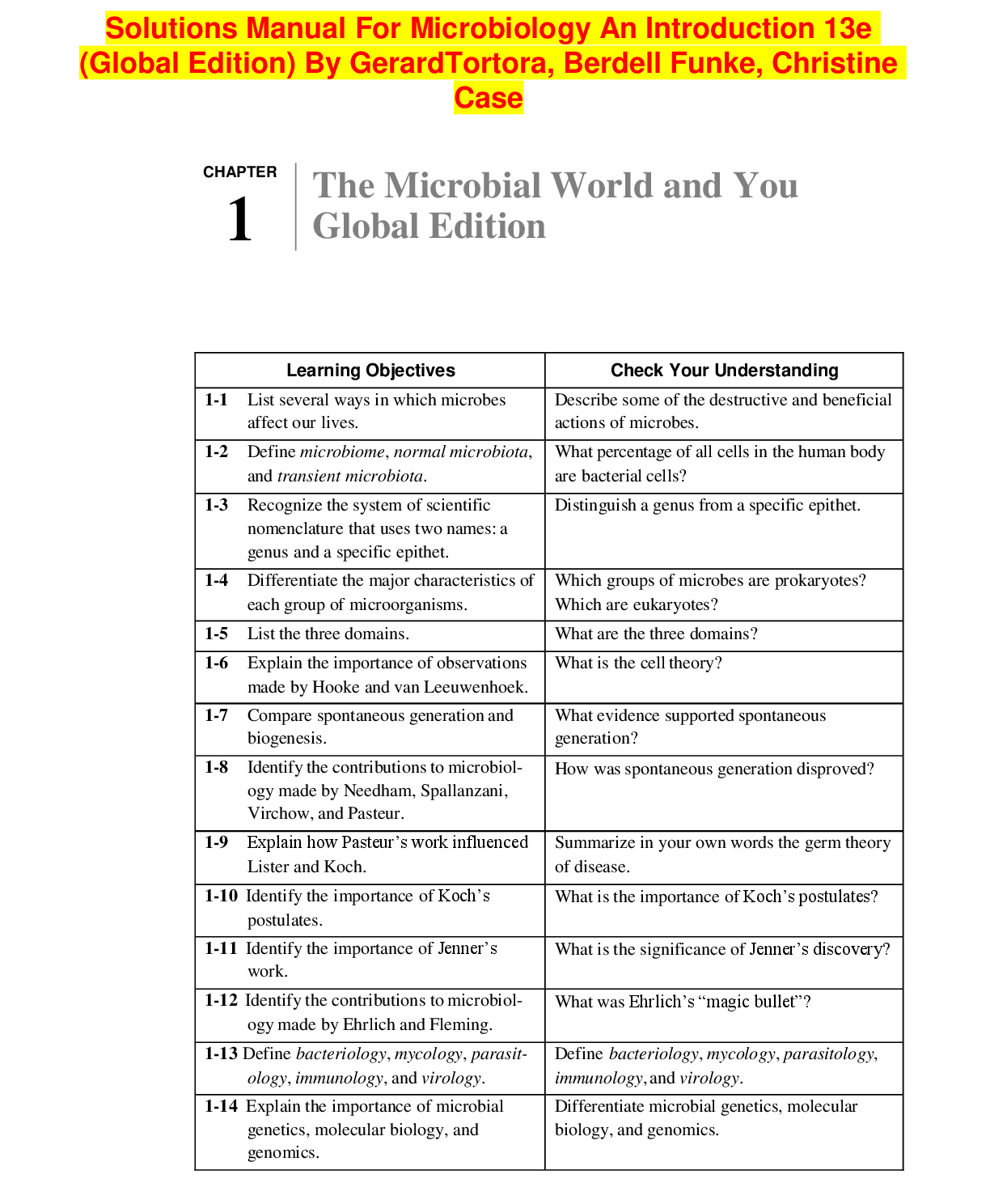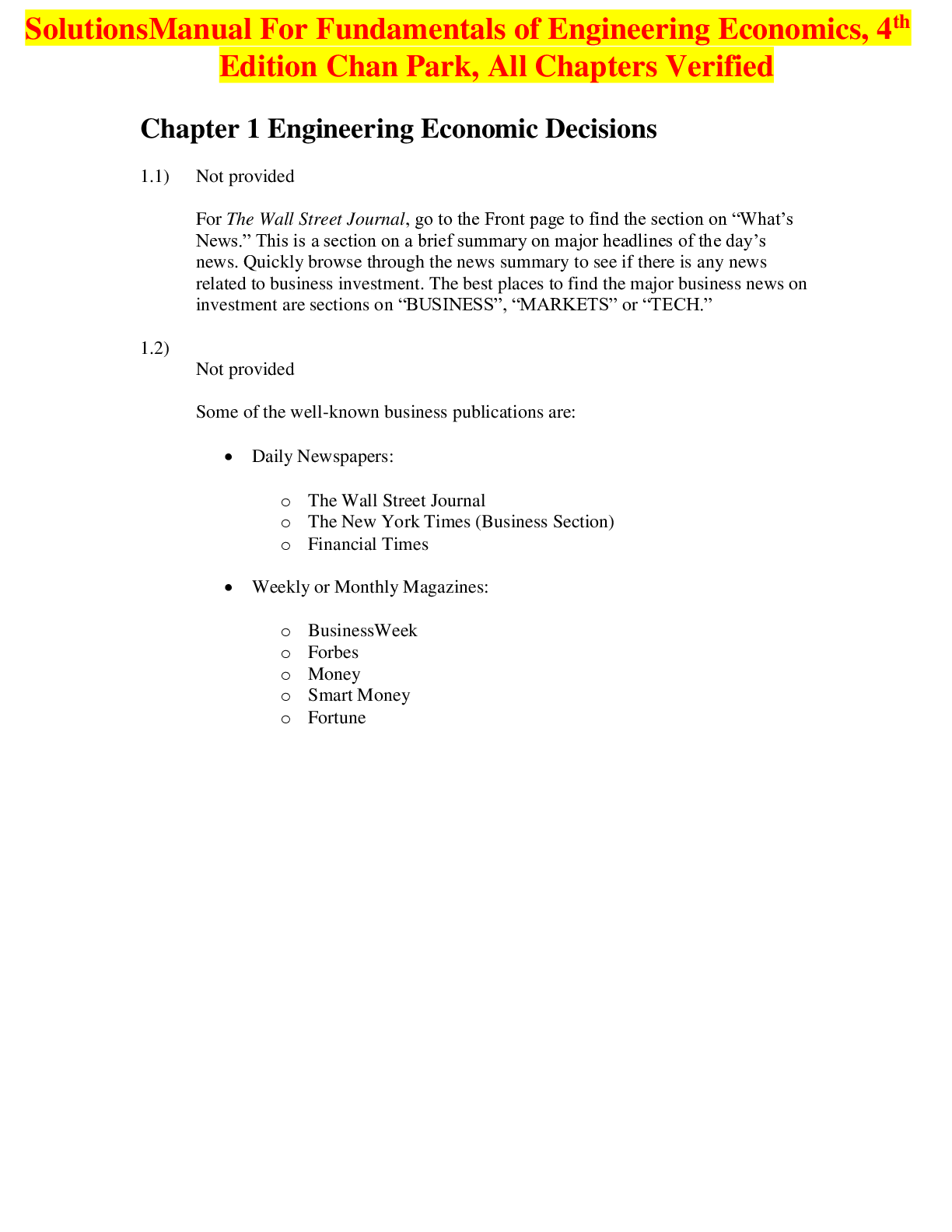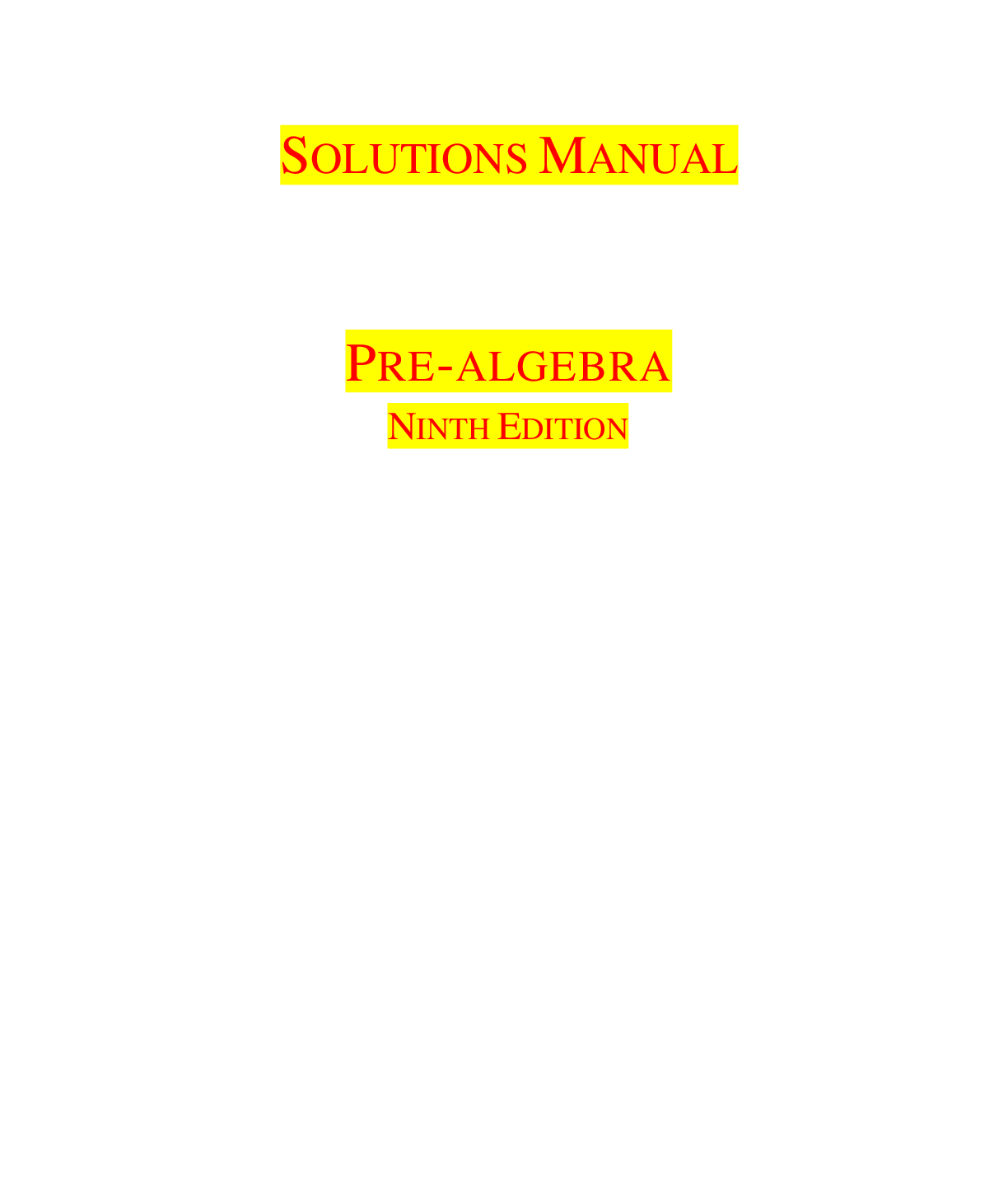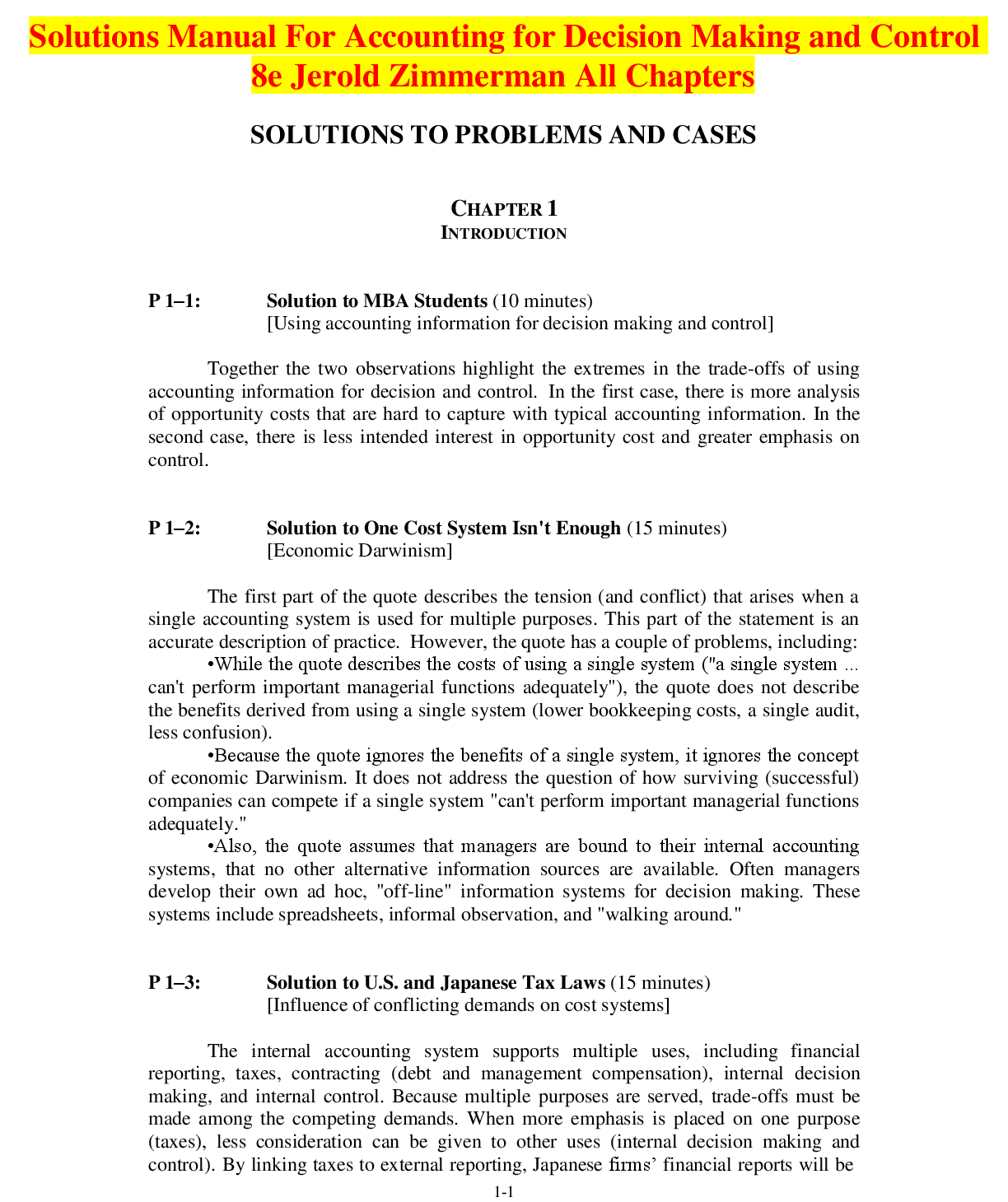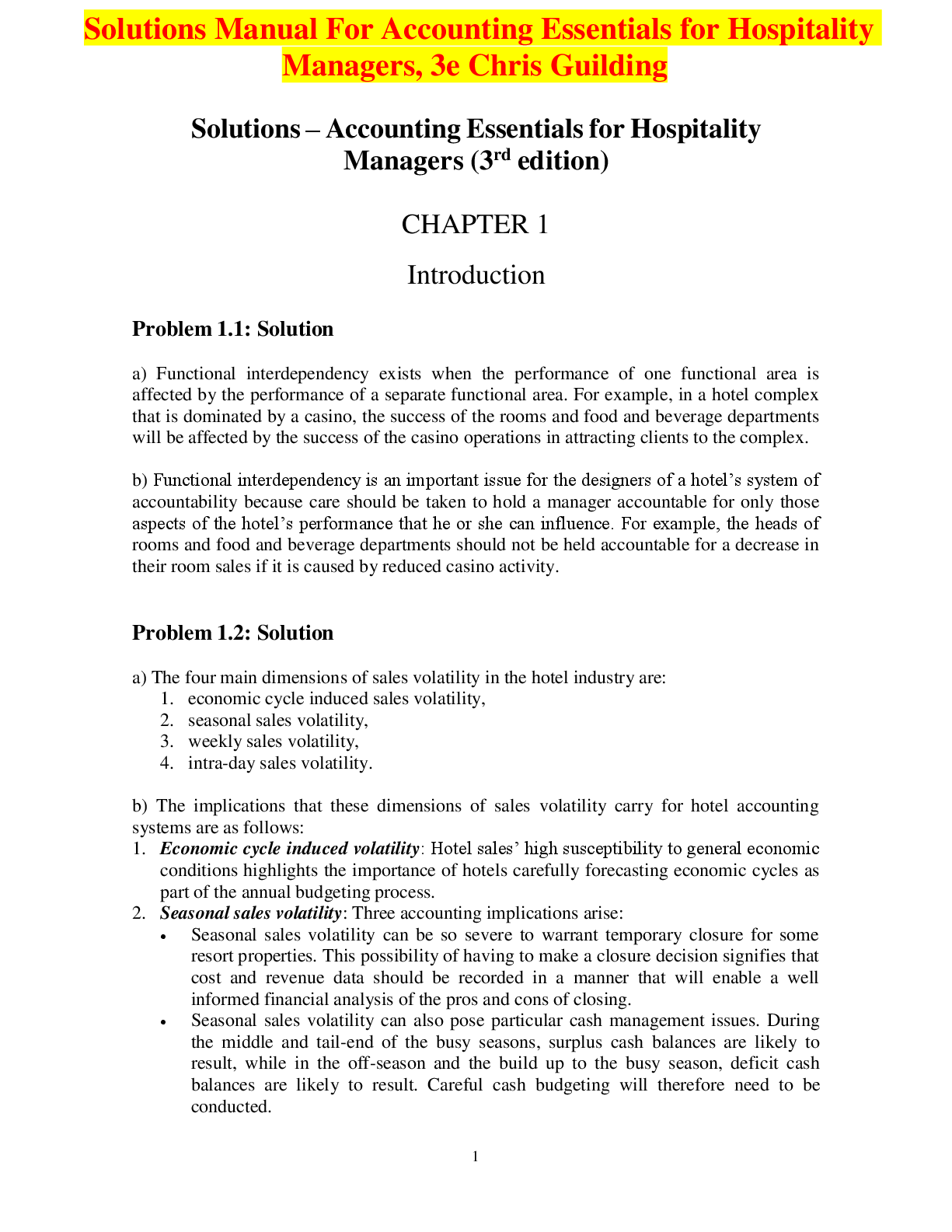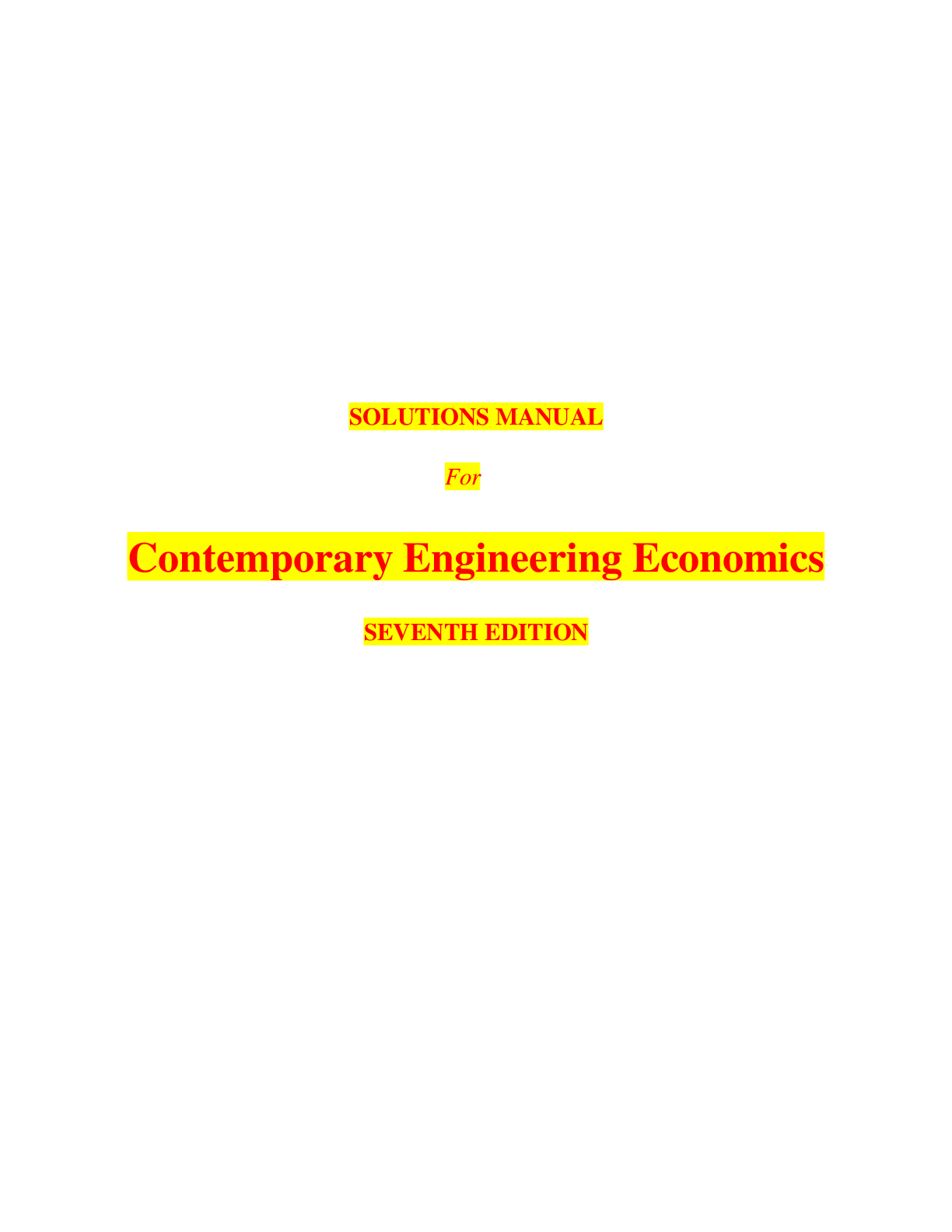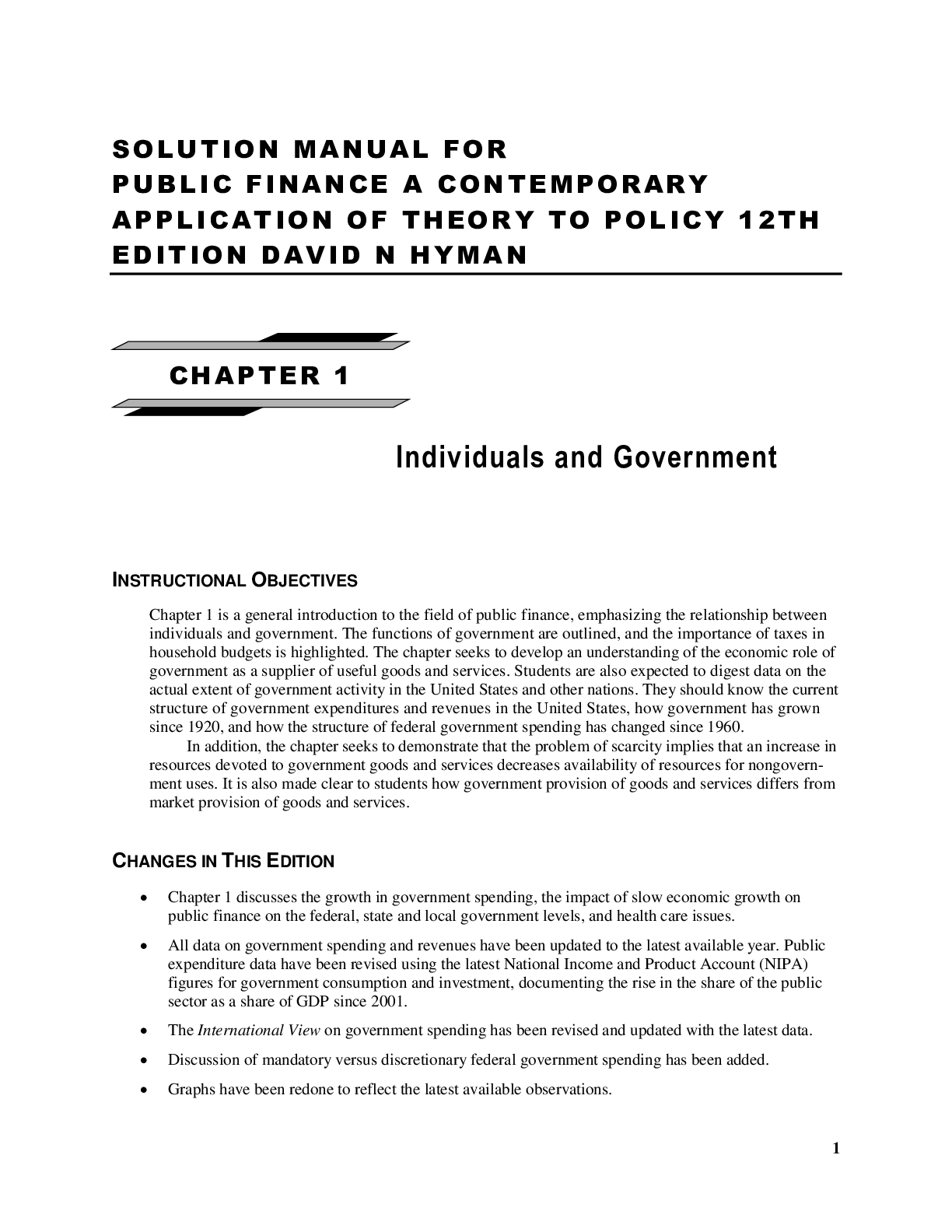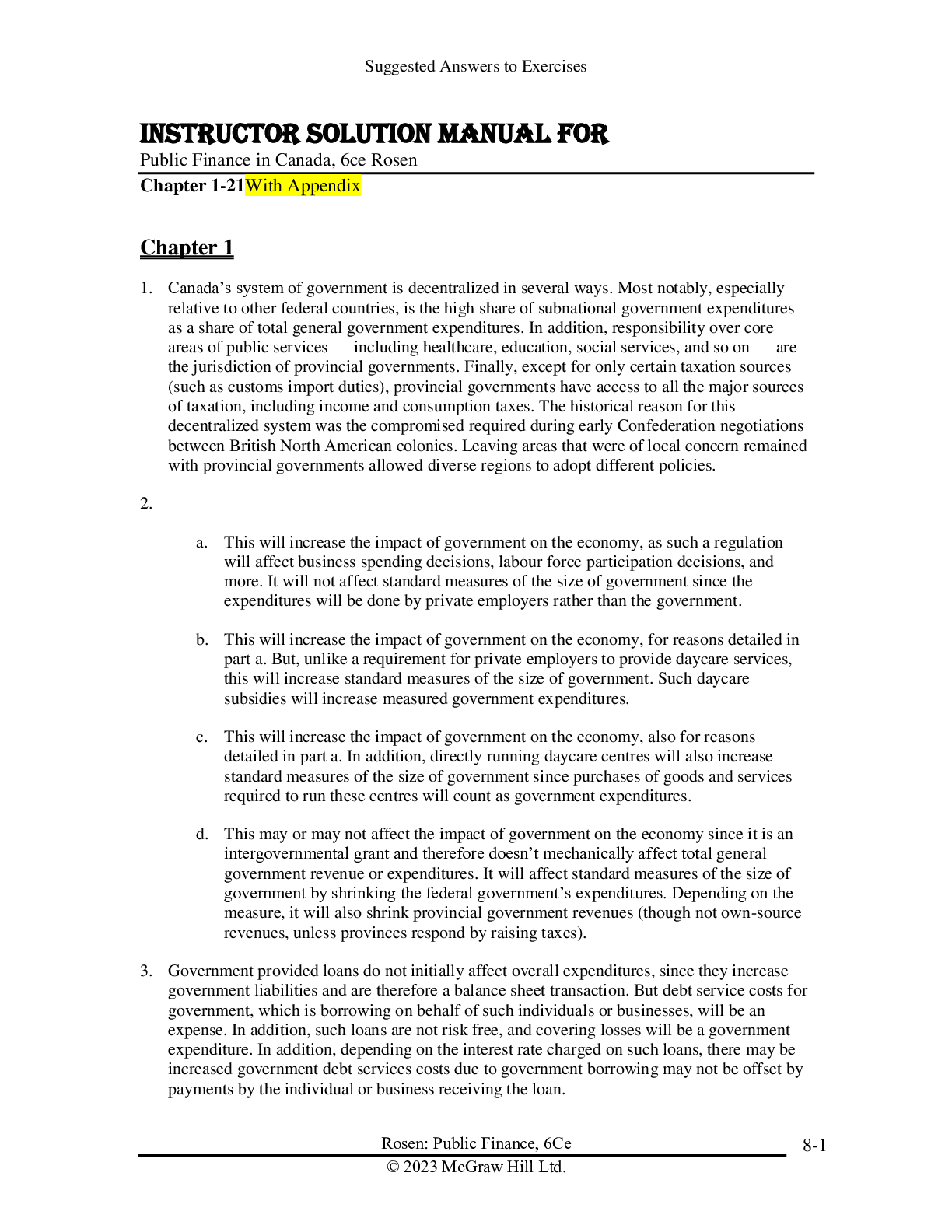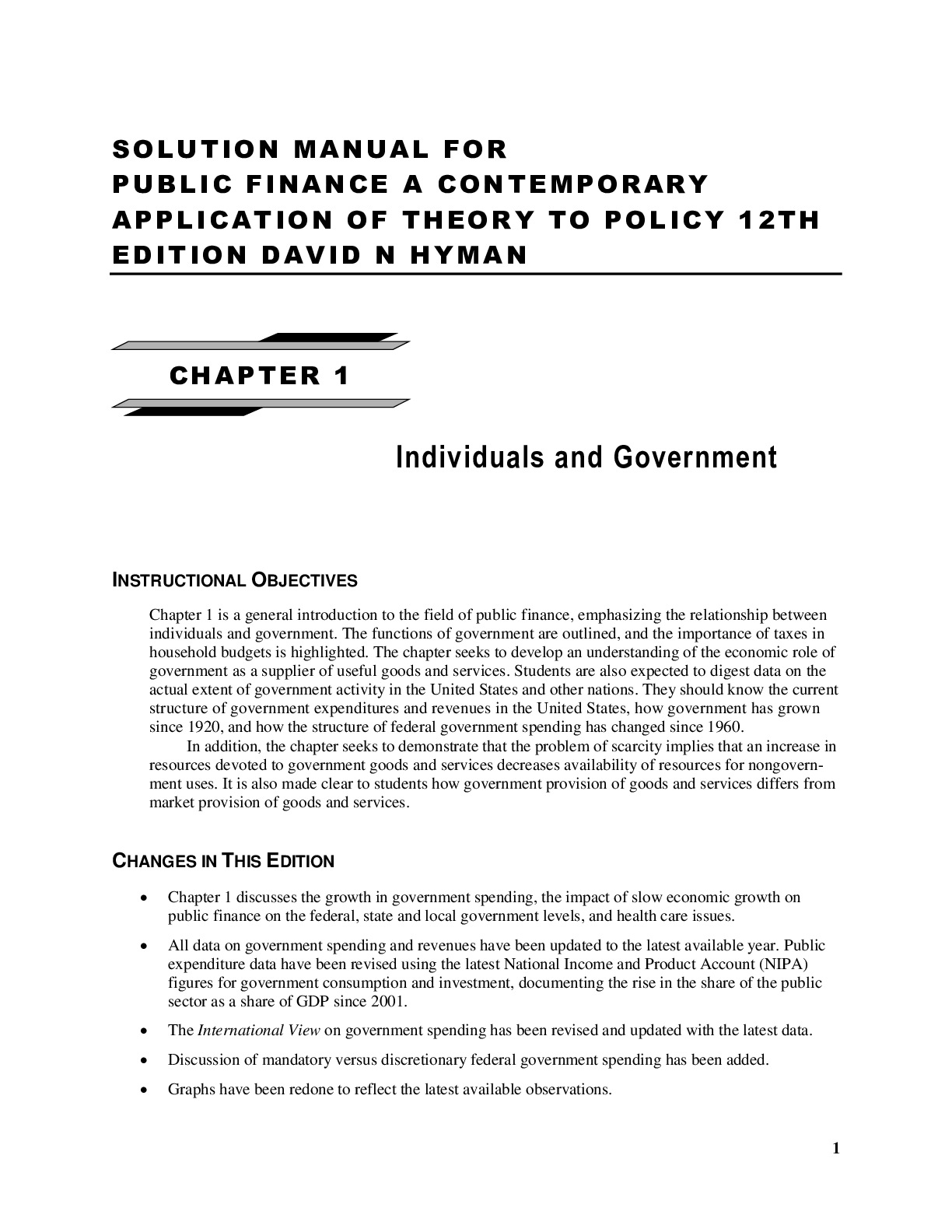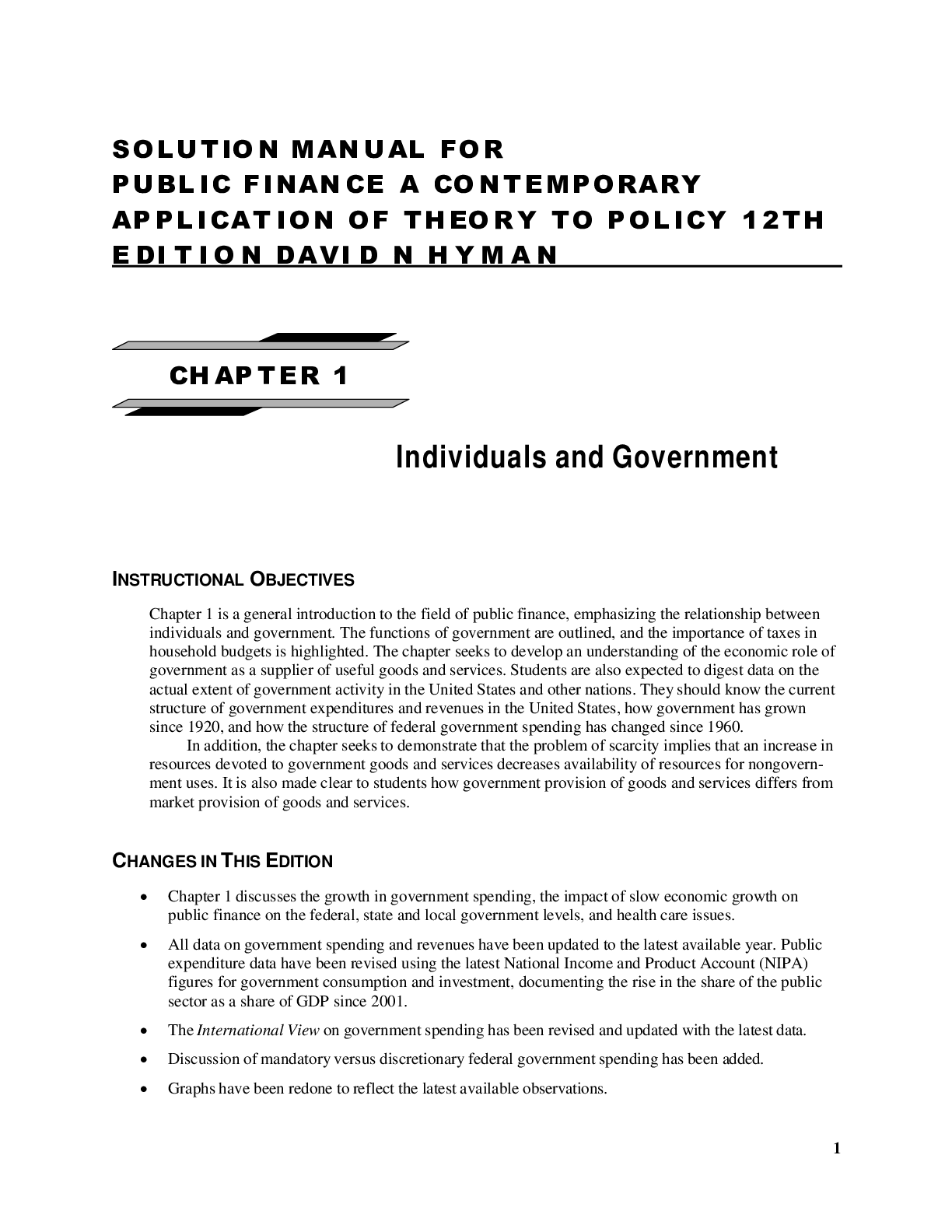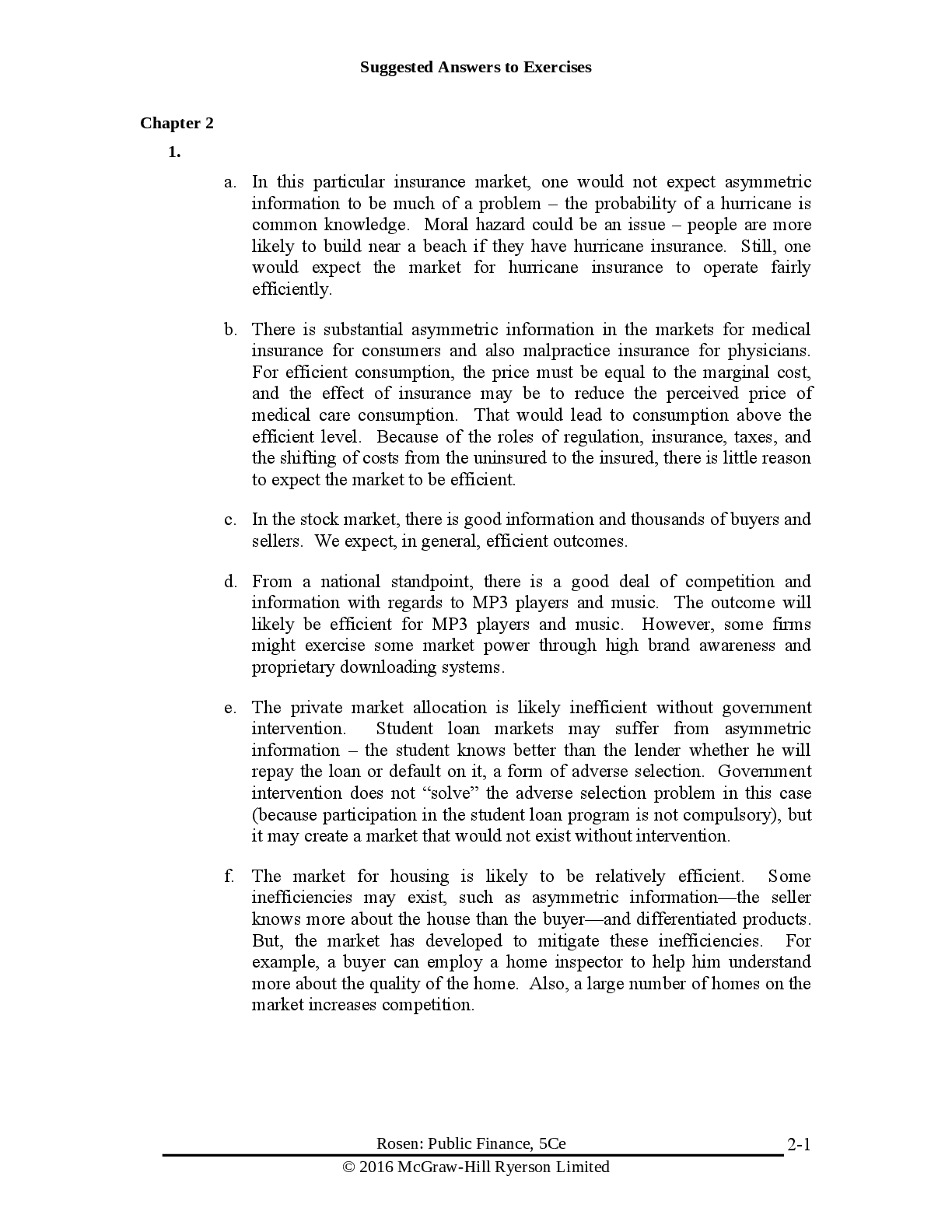Finance > SOLUTIONS MANUAL > Solution Manual for Public Finance A Contemporary Application Of Theory To Policy 12th Edition David (All)
Solution Manual for Public Finance A Contemporary Application Of Theory To Policy 12th Edition David N Hyman
Document Content and Description Below
Solution Manual for Public Finance A Contemporary Application Of Theory To Policy 12th Edition David N Hyman-1. My objective in the first lecture is to make it clear to students how economic analysis ... of the functions and activities of governments fits in with their other courses. Since most students have already had at least one course in microeconomics, I point out how governments can be thought of as agents for supplying goods and services whose quantities have been determined through political, as opposed to market, interaction. The role of government in the mixed economy is schematically illustrated with a modified circular flow diagram. Figure 1.2 represents a useful starting point for illustrating how the economic analysis of government fits in with previous analyses of markets to which most students will have already been exposed. I usually draw the diagram on the board and show how both households and business firms have economic relations with governments. 2. The tradeoff between government goods and services, and private goods and services is illustrated with the production possibility curve. Figure 1.1 is familiar to most students, and its application to analysis of government goods and services usually captures their attention. It helps to use the graph in class to discuss reallocation of resources from military to nonmilitary uses. Another interesting use of the graph is to show how increased environmental quality improvement services supplied by government will require the sacrifice of material goods and services, as the prices of such products as fuel, electricity, and automobiles rise. 3. Emphasize that government goods and services are usually made available through nonprice rationing: a. Government goods are often available for collective use at no direct charge, as is the case for roads, national defense, police services, fire protection, and environmental protection. b. Eligibility for obtaining the benefits of government services is determined by criteria other than ability and willingness to pay. Politically determined criteria, such as age, income, family status, and location of residence, often determine a person’s eligibility to receive government transfers such as food stamps and services such as public schooling. 4. A general listing of the functions of government, as discussed in the text, is useful to students. These functions are as follows: a. Provision of useful goods and services, including the establishment of property rights and the underlying legal system b. Redistribution of income and economic opportunity among citizens c. Stabilization (Note that this is not covered in the text.) d. Regulation of private action 5. Note that the discussion of government finance in the chapter briefly outlines the fact that the consequences of alternative means of finance differ in terms of the impact on incentives to produce and on the distribution of well-being. 6. I usually photocopy the tables in Chapter 1 and bring them to class for the second lecture. I believe that it is important for students to have some appreciation of the current extent of government and the growth of expenditures and revenues in recent years. 7. In addition to illustrating the growth of government, I seek to show how the structure of federal government expenditure has changed significantly since 1960. First, point out to students the spectacular growth in the relative importance of transfers from 1960 to 1980. You can also point out that transfers stabilized at close to 40 percent of federal spending in the 1970s. After declining slightly as a share of federal spending in the 1980s, they rose again in the 1990s and now account for about 43 percent of federal spending. Federal government purchases of goods and services for consumption and investment has declined from over 60 percent of federal spending in 1960 to 27 percent in 1999. Since the end of the Cold War, purchases have declined as defense spending has been cut back. However, the terrorist attacks of September 11, 2001, resulted in both increased government spending and a shift away from transfers toward government consumption. 8. In discussing actual expenditures, use Table 1.3 and the accompanying pie chart to show the importance of Social Security, income security, Medicare, and health for the federal government; and point out that these programs account for about 63 percent of federal government expenditures. Also point out that about 32 percent of state and local government expenditure is accounted for by education. Health care spending by state and local governments, mainly for Medicaid, has been growing rapidly and now accounts for about 24 percent of state and local government spending. 9. Use the data and accompanying pie charts in the chapter to show students how income taxes, including payroll taxes and corporate profits taxes, account for more than 90 percent of federal government revenue. Also point out that sales and property taxes account for nearly half of state and local government revenues and that one in five dollars of receipts received by state and local governments comes from federal grants-in-aid. [Show More]
Last updated: 3 months ago
Preview 5 out of 135 pages

Loading document previews ...
Buy this document to get the full access instantly
Instant Download Access after purchase
Buy NowInstant download
We Accept:

Reviews( 0 )
$13.50
Can't find what you want? Try our AI powered Search
Document information
Connected school, study & course
About the document
Uploaded On
Apr 07, 2025
Number of pages
135
Written in
Additional information
This document has been written for:
Uploaded
Apr 07, 2025
Downloads
0
Views
25

